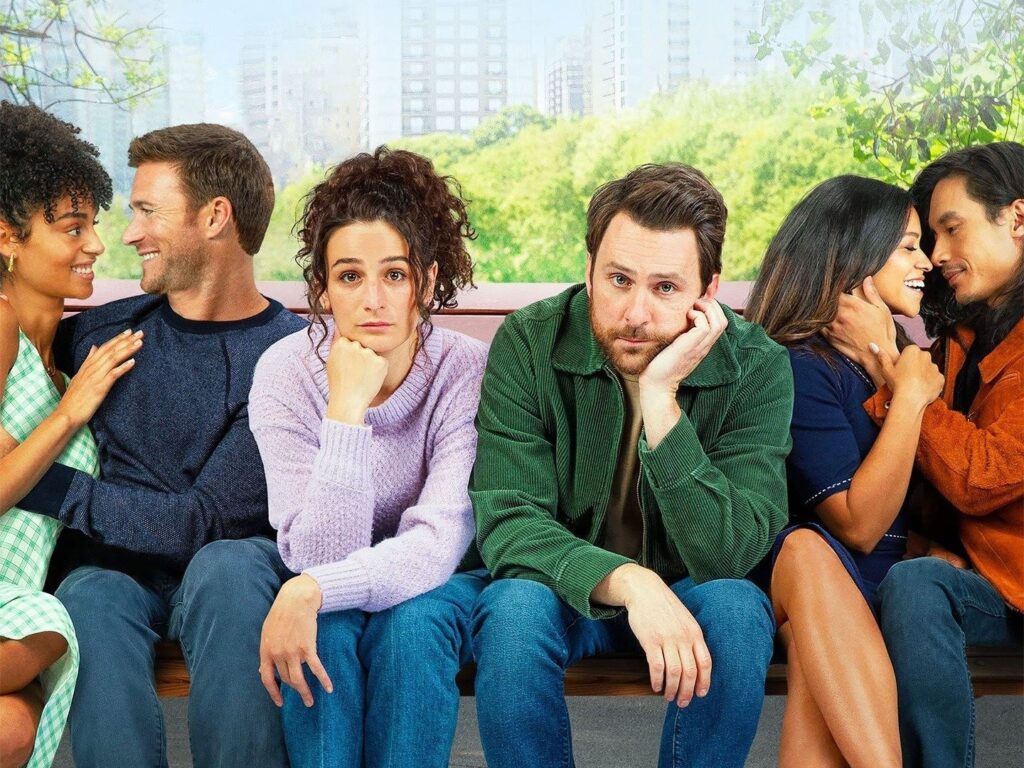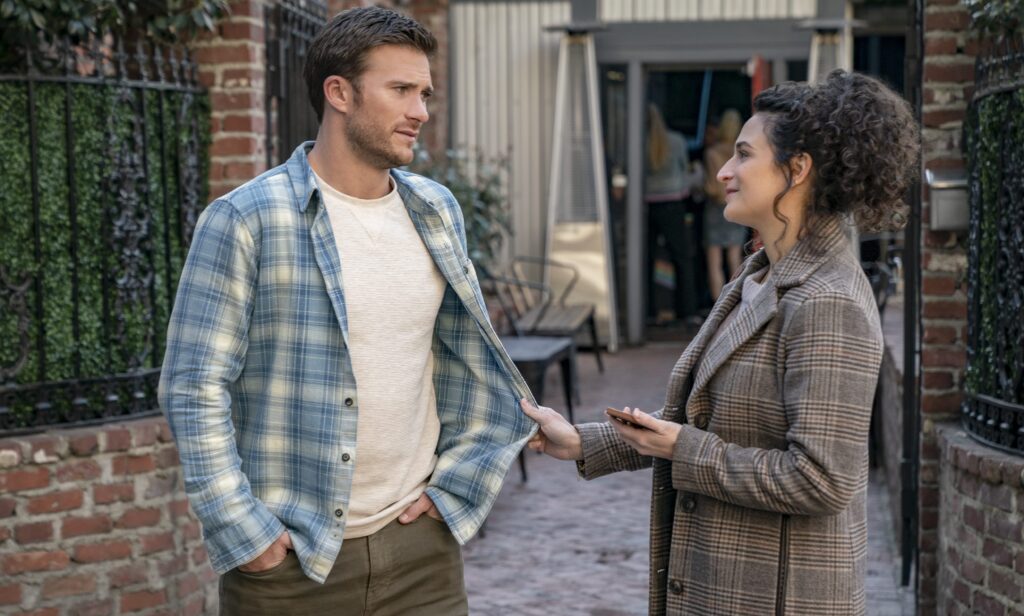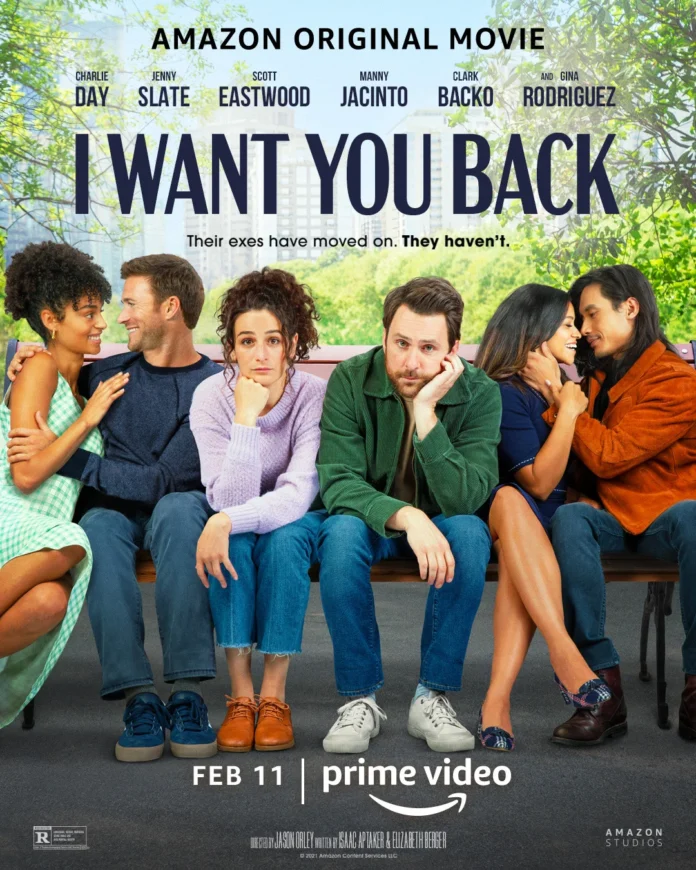why “I Want You Back” disappoints despite its promising cast and premise. Dive into our critical analysis for insights.
In the realm of romantic comedies, where hearts flutter and emotions soar, “I Want You Back” lands with the weight of missed opportunities and unfulfilled promises. Jenny Slate and Charlie Day, two actors known for their comedic prowess, find themselves trapped in a narrative that fails to harness their potential, leaving audiences yearning for more substance and depth.
I Want You Back – A Stale Premise in Need of Revitalisation
At its core, “I Want You Back” presents a familiar premise: two jilted lovers, Emma and Peter, conspire to sabotage the burgeoning relationships of their ex-partners.
Yet, despite the potential for comedic gold in this setup, director Jason Orley’s film falls short of capitalising on its inherent absurdity.
Instead of embracing the darker, more nuanced aspects of break-up comedy, the narrative tiptoes around them, opting for safe, predictable plot points.

Squandered Talent: A Wasted Opportunity
Slate and Day, undeniably talented performers, are left to navigate a script that feels more like a series of missed chances than a coherent story. While they inject moments of energy and wit into their characters, the material they’re given fails to match their skill level. Scenes that should crackle with comedic tension fall flat, hindered by lacklustre dialogue and uninspired direction.
A Lack of Depth and Dimension
One of the film’s most glaring flaws is its treatment of secondary characters. Anne, Logan, and Ginny, the unwitting targets of Emma and Peter’s scheming, are reduced to mere plot devices, devoid of agency or complexity. By sidelining these characters and prioritising the central duo’s narrative arc, “I Want You Back” misses an opportunity to explore the ripple effects of heartbreak and betrayal on all involved.

Missed Opportunities and Clichéd Conclusions
As the film unfolds, it becomes clear that “I Want You Back” is content to play within the confines of genre conventions, rather than push the boundaries of what a romantic comedy can achieve. Surprising twists and turns are few and far between, giving way to predictable outcomes and clichéd resolutions. Even the film’s climactic scene, set aboard an airplane, feels like a tired rehash of familiar tropes, lacking the innovation and originality that could elevate it above mediocrity.
Hmm: A Call for Innovation and Originality
In the landscape of romantic comedies, where innovation is often overshadowed by familiarity, “I Want You Back” serves as a cautionary tale. By squandering the talents of its cast and clinging to tired clichés, the film fails to leave a lasting impression, settling instead for fleeting moments of amusement.
As audiences hunger for fresh perspectives and bold storytelling, it’s clear that the genre is ripe for reinvention. Only by embracing innovation and originality can romantic comedies reclaim their rightful place as cinematic treasures.
